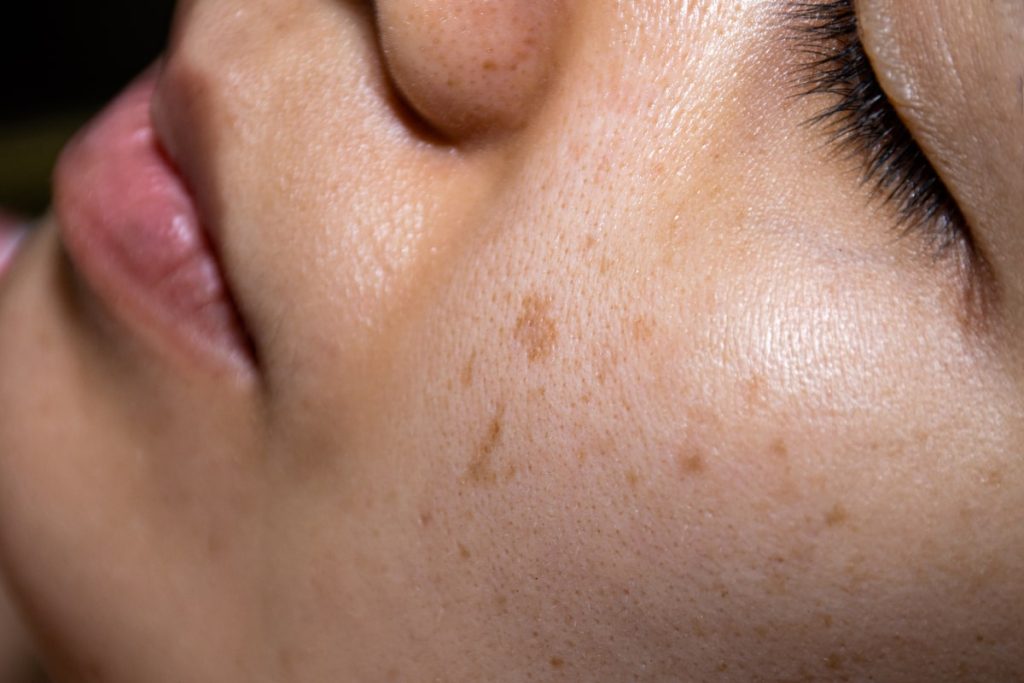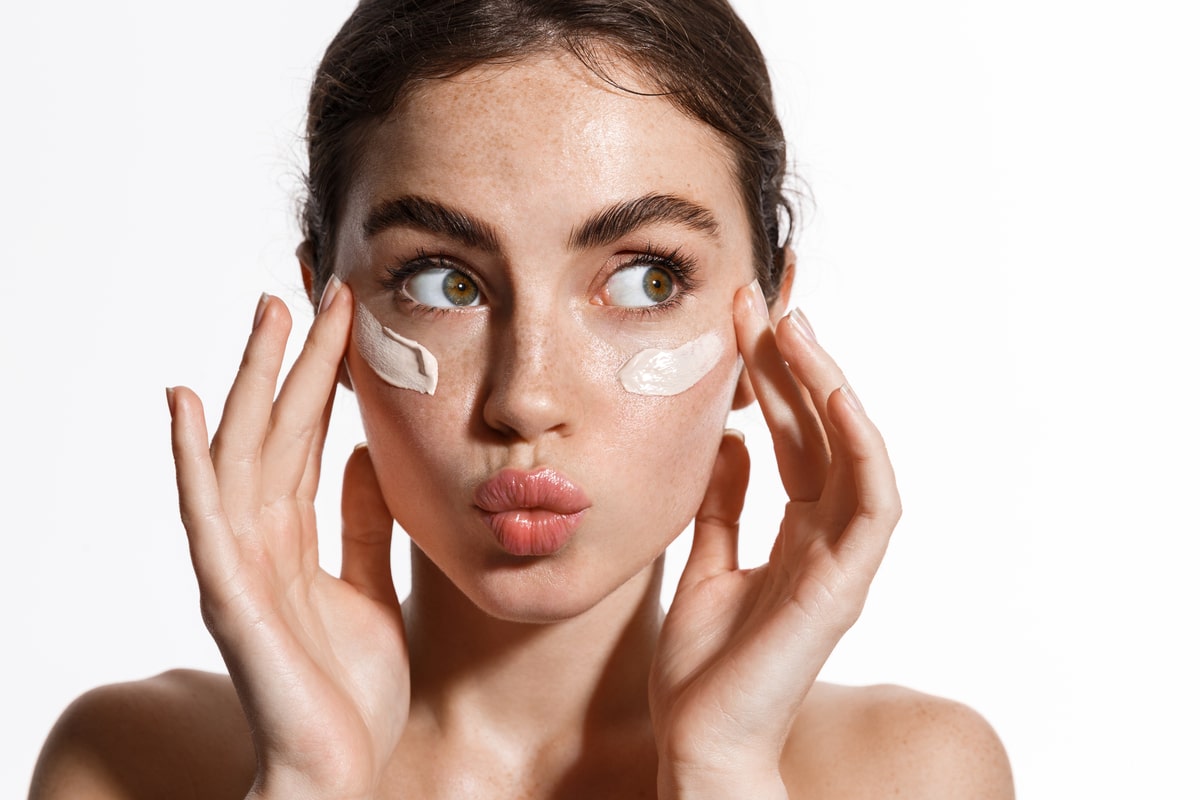No products in the cart.
Blog, Procedures, Skin Care Products, Sun Protection, Treatment, Uneven Skin Tone
Understanding Uneven Skin Tone: Prevention And Treatment
Do you often find yourself concerned about your uneven skin tone? You’re not alone. Uneven skin tone is a common issue that affects many people, regardless of their skin type. Uneven skin tone, or skin discoloration, occurs when the natural color of your skin is disrupted by excess melanin production, which can create dark spots and areas of redness. It can be caused by various factors, including sun exposure, hormones, and genetics. Studies have shown that skin discoloration can significantly impact your overall appearance, often making people appear older.
Keep reading to discover valuable tips and proven strategies for achieving an even skin tone and maintaining your skin’s natural beauty.
Factors That Cause Uneven Skin Tone
Many factors come into play when your skin deviates from the even tone, each taking your complexion on a journey – and not the journey you’d booked. Understanding these causes, often hidden in your daily routine, is essential to restore your skin health successfully.
Hyperpigmentation
Hyperpigmentation is your skin type’s overzealous response to various factors, generating extra melanin that goes off-script, causing an uneven skin tone. Dark spots, often appearing as sun damage, surface when your skin gets in on more melanin production than required. It could be replying to an old wound or sun exposure, but it doesn’t provide the clear, even skin tone you’re after.
Sun Damage
The most notorious cause of uneven skin tone is sun damage. Your skin cells produce extra melanin to defend against harmful sun exposure, leaving behind dark spots and uneven skin tones. Think of it as your skin’s imperfect way of wearing armor against UV rays. An effective SPF serum will keep much sun damage at bay, so never skip sun protection.
Post-Inflammatory Changes
If you’ve experienced redness following an injury or acne, you’ve met post-inflammatory changes, another cause of uneven skin tone. The inflammation triggers skin cells to produce more melanin than needed, leaving you with darker patches. Steering clear of dead skin cells that block pores and cause inflammation is a good start toward preventing post-inflammatory hyperpigmentation.
Genetic Factors
Genes sometimes go all-in, making some skin types more susceptible to uneven skin tone than others. This predisposition doesn’t mean waving the white flag to dark spots. Regular consultations with a dermatologist and tailored skin care can compensate for genetic factors, improving your skin tone effectively.
Now that we’ve unveiled some mysteries behind skin discoloration, it’s time to fight back with science and expert advice from Dr. Longwill Skincare. Let’s find out how.
Prevention Of Uneven Skin Tone
Ever cast a glance at your reflection, only to wonder, “How do I get an even skin tone?” Well, you’re not alone. Uneven skin tone is a common skin condition plaguing many, causing a mix of hyperpigmented brown spots, so-called age spots, and areas of relative skin lightening. Getting rid of uneven skin tone might feel like a Herculean task, but with some strategic habits and practices in place, you’ll be on your way to healthier, glowing skin.
Sun Protection
Your skin is repeatedly exposed to the sun, making sun protection paramount. Not only can it help prevent skin aging, but it’s also vital to protect your skin from the damaging UV rays that contribute to the darkening of the skin. Wearing sunscreen is non-negotiable. A broad-spectrum sunscreen applied directly to the skin is essential in your skincare routine to prevent your skin from age spots and sun spots. More than this, you can also adopt sun-safe habits. Wear a hat, stay in the shade during peak hours, and remember to reapply sunscreen.
Proper Skincare Routine And Choosing The Right Products
Getting an even skin tone is not a one-and-done deal. It’s about maintaining a proper routine consistently. Start with the basics: cleansing, exfoliating, and moisturizing. Cleansing can help clear the layers of the skin from impurities and keep your skin hydrated. Next up, exfoliating.
It helps to gently buff away dead skin cells at the surface, allowing your skin to breathe. Moisturizing then helps to reinforce the skin barrier, giving your skin the hydration it needs. Incorporate power-packed ingredients like Vitamin C and retinoids in your regime. Vitamin C can brighten your skin, while retinoids can help improve overall skin health and reduce skin irritation. They penetrate the skin to improve skin texture and even out skin tone.
Healthy Diet And Lifestyle
What you put inside your body reflects on your skin. A diet rich in antioxidants, healthy fats, vitamins, and minerals will cause an uneven skin tone to improve over time. Stay hydrated. Aim to get glowing skin from within!
Whether it’s sun protection, a structured skincare routine, or a healthy diet, remember that it’s about creating habits. With these, watch your skin transform in tone and texture. Prevent skin damage today, and you won’t need a fix for uneven skin tone in the future. Remember, the goal is not about achieving that mostly unattainable “perfectly even skin tone” but bringing your skin to its healthiest, most resilient version. It’s also essential to understand the unique needs of your skin type; whether it’s sensitive skin or darker skin tones, so as to tailor efforts accordingly.
Treatment Options For Getting Rid Of Uneven Skin Tone
Let’s tackle uneven skin tone. You’ve understood its causes, and now it’s time to discuss how to even out your skin tone. Before we dive in, remember everyone’s skin type is different, so what works for one, might only work for some. However, with that in mind, let’s explore some treatment options.
Topical Treatments
Topical solutions like Azelaic acid, corticosteroids, and brightening agents can be your first step toward achieving an even skin tone. Take the example of Azelaic acid, which reduces skin redness and decreases the rate of skin cell growth associated with lesions—fighting two causes of uneven skin tone at once.
Prescription Products
Prescription products hold a significant edge when it comes to treating skin discoloration. Dermatologists prescribe them directly, considering your unique skin tones and needs. These specialized formulations work beyond the layer of dead skin cells to foster skin health at the cellular level.
Dermatologist-recommended Procedures
Many procedures, such as chemical peels, lasers, light therapies, and microdermabrasion, can be powerful tools to tackle uneven skin tone. Yes, these procedures eradicate the surface layers ravaged by sun damage. But they also stimulate the deeper layers of skin, encouraging healthier, more evenly toned skin to rise to the surface.
Natural Remedies
Natural powerhouses like topical vitamin C can help reduce dark spots caused by sun exposure. Combine that with azelaic acid, and you have a home remedy that helps with evening skin tone. Guarding against sun damage plays a crucial role in treating uneven skin tone. A simple, daily habit of sun protection can boost the effects of all the treatments mentioned above.
Always ensure to consult with your dermatologist before getting onto any skincare regimen. For the best professional and long-lasting treatment of uneven skin tone, consult Dr Longwill Skincare.
Dr. Deborah Longwill, their chief dermatologist, has a holistic clinical approach, which involves first listening to patients’ concerns, then thoroughly diagnosing and explaining their individual treatment options, with short- and long-term personalized treatment plans. Tackling uneven skin tone involves a combination of treatments that target both the cause and the effect. Choosing the correct treatment and persisting with it is the key. Take the first step towards achieving that coveted even skin tone today.
When To Consult A Dermatologist
Are you battling uneven skin tone and not sure when to seek expert advice? Here’s when to dial up your dermatologist. If you’ve tried your hand at multiple remedies and your uneven complexion persists, a professional opinion might be required. When products you’re using to even out skin tone don’t penetrate the skin effectively or you don’t see any visible improvement, consider it a sign to consult a professional.
Changes in skin texture, persistent redness, skin irritation, or worsening of your skin condition are other indicators to seek help from the experts, such as Longwill Dermatology – A Miami-based Centre for Dermatology. They understand that every skin type is unique and provide holistic advice tailored to you. Increasing age spots, disturbing brown spots, or patches of skin that continuously darken signify more profound skin damage that needs a specialized approach. This is where a dermatologist can guide you in treating uneven skin more efficiently.
Longwill Dermatology offers a range of laser treatments that help improve skin health from deeper layers. It can brighten your skin and give you a smoother skin tone and texture over time.  If you have sensitive skin and home remedies cause more harm than good, their expert guidance will help you navigate the process of getting an even skin tone, considering your skin’s sensitivity to different types of products.
If you have sensitive skin and home remedies cause more harm than good, their expert guidance will help you navigate the process of getting an even skin tone, considering your skin’s sensitivity to different types of products.
The causes of an uneven skin tone could be several, from sun spots and skin aging to damage to your skin due to UV rays or an impaired skin barrier. Consulting a dermatologist will help you understand your skin’s unique needs and set you on a path to healthier, glowing skin.
So, in the quest to get rid of uneven skin tone, remember this – it’s essential to care for your skin every day. Aim for a perfectly even skin tone, but don’t miss out on the signs when you need expert advice. Protect your skin from further damage and let the professionals guide you to a visually more even skin tone.
Wrapping up our journey on understanding uneven skin tone, we leave with one simple yet potent message. Yes, achieving a perfectly even skin tone might be challenging, and progress might be slow. But by investing patience, employing the right treatments, and consulting the experts when necessary, we aren’t just chasing after an aesthetic goal—we’re investing in our skin’s long-term health.
Try not to miss the forest for the trees—uneven skin tone is just a chapter in your skin’s story, and what an exciting plot twist awaits in the journey to healthier, revitalized skin.









